Collaboratory update October 2022 | Ethiopia
All the latest from our colleagues in Ethiopia
20 October 2022
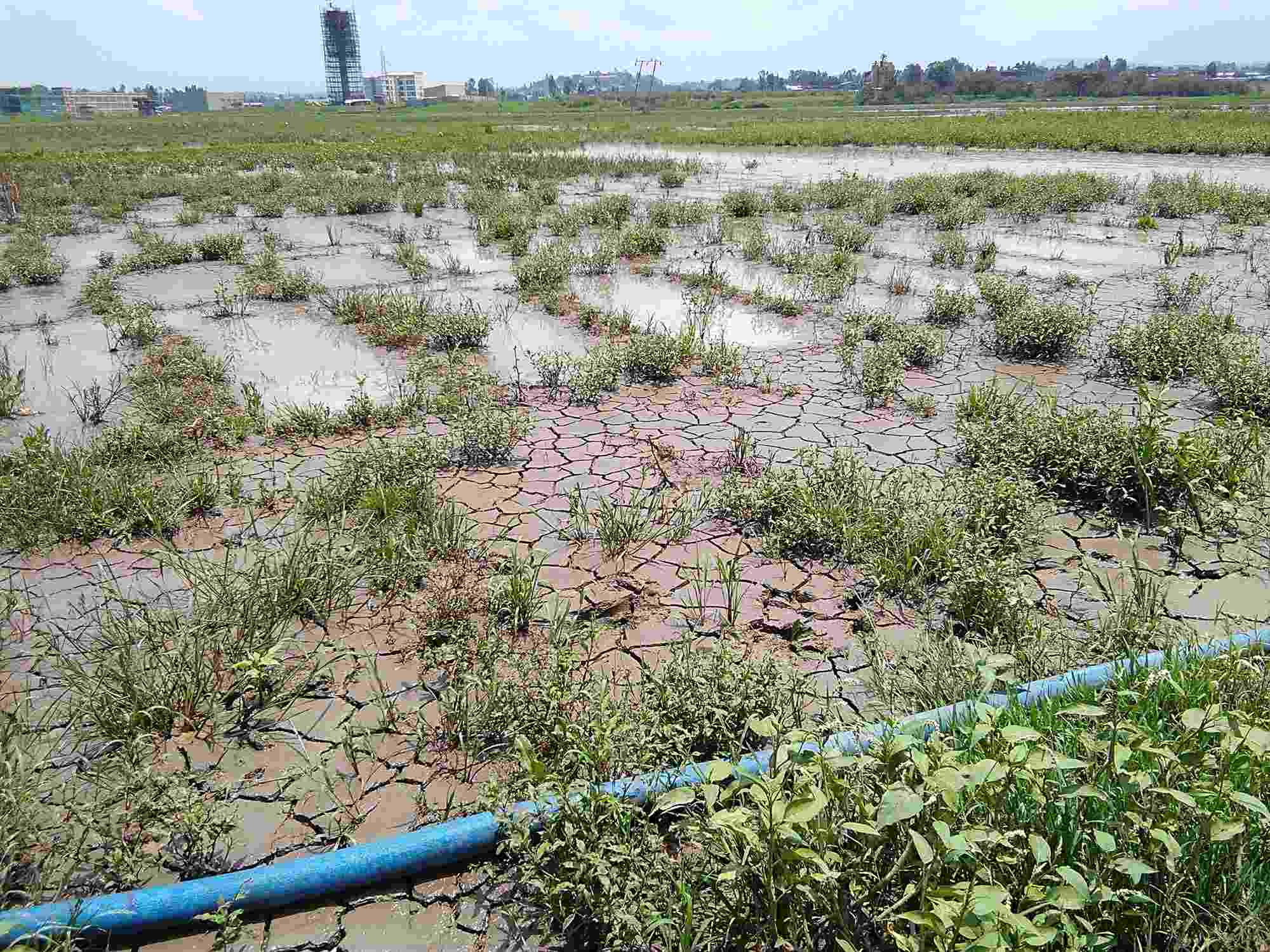

A flooded farm located mid-stream of the Akaki river. The flood water and silt damages crops.
Co-produced, cross-collaboratory research is central to the Hub’s interdisciplinary systems approach, and the Hub’s Ethiopia team has been working closely with Colombian colleagues on a socio-ecological justice methodology. Working in the Akaki catchment of the Upper Awash River Basin in Ethiopia, the team has conducted social mapping and consultative workshops on water pollution and flooding with stakeholders. They have also adapted the social cartography participatory research method, developed by the Colombia Collaboratory, for use in the Akaki catchment, co-creating maps with communities and local stakeholders. The results help identify groups vulnerable to flooding, water pollution, and other water risks, and locate key natural resources and institutions like health centres, schools, and other infrastructure, in relation to their settlement patterns. The workshops and discussions have already helped develop understanding amongst communities of the interconnectedness of water security, human wellbeing, and ecosystem health.
Water security risks are a core theme in the Hub’s work, underpinning many aspects and topics across each of our Collaboratories. Researchers from the University of Leeds have developed the MUISKA (MUltidimensional rISK Assessment) approach to assess water security risks. To ensure the MUISKA tool is applicable across different contexts and scalable to different levels, the Leeds team are working with each Collaboratory to explore local applications and incorporate their inputs: Dr Miller Alonso Camargo-Valero recently visited WLRC colleagues to explore MUISKA together.
Colleagues from Ethiopia and Leeds also came together to continue ongoing collaborative work on water quality, floods, and costing water infrastructure, and researchers at IWMI are working closely with Leeds colleagues on water risks and governance. A number of the Ethiopian team also attended the Global Flood Partnership (GFP) Annual Conference hosted by the Leeds team, sharing knowledge and experiences from their flood study in the Akaki catchment. Newcastle University also hosted colleagues from the Ethiopia Collaboratory for the water quality training and mini symposium, the latter of which showcased the excellent water quality research ongoing across the Hub. Dr Alemseged Tamiru Haile gave a talk on “Urban pollution impacts on river microbiomes and associated hazards”, and Dr Bitew Kassaw delivered a presentation on “Water quality degradation in the Upper Awash Basin and pathways to address its impact”.
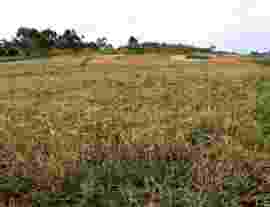
Farmers in the headwater area carry out the Belg harvest in July
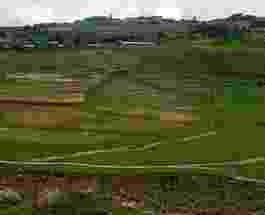
Streams start to flow in the headwater area of Megezez mountain
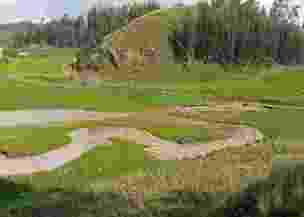
Wetlands in the downstream area three hours after heavy rainfall
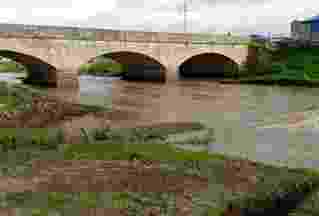
Downstream rivers become full (Chacha River during peak wet season, July)
Water Sensitive Planning (WSP) is another of the Hub’s cross-cutting research themes, led by our India Collaboratory. The Ethiopia WSP team gathered data and information covering a wide range of urban planning patterns and models, including water supply, drainage, and wastewater management. Next steps include conducting a study on WSP in Addis Ababa and the Upper Awash River Basin. Colleagues also carried out further data collection on Agricultural Water Management (AWM) practices during seasonal rainfall. Focusing on wet season water management, the team are exploring land use/land cover change, agronomic practices, and land and water management practices in the Abbay Basin.
IWMI are currently hosting Xanthe Polaine (Newcastle University) during her fieldwork secondment to Ethiopia. As part of their joint research into water security and governance, the team held a co-generation workshop, exploring the concept of ‘Problemscapes’ as an aid to water management planners and practitioners in engaging with complex water security environments. The workshop enabled participants to frame water security problems in Addis Ababa and helped Addis Ababa Water and Sewerage Authority (AAWSA) to articulate and communicate their water security perspective with fellow institutions. The team also conducted a series of field visits across the Akaki catchment, including stakeholder interviews.
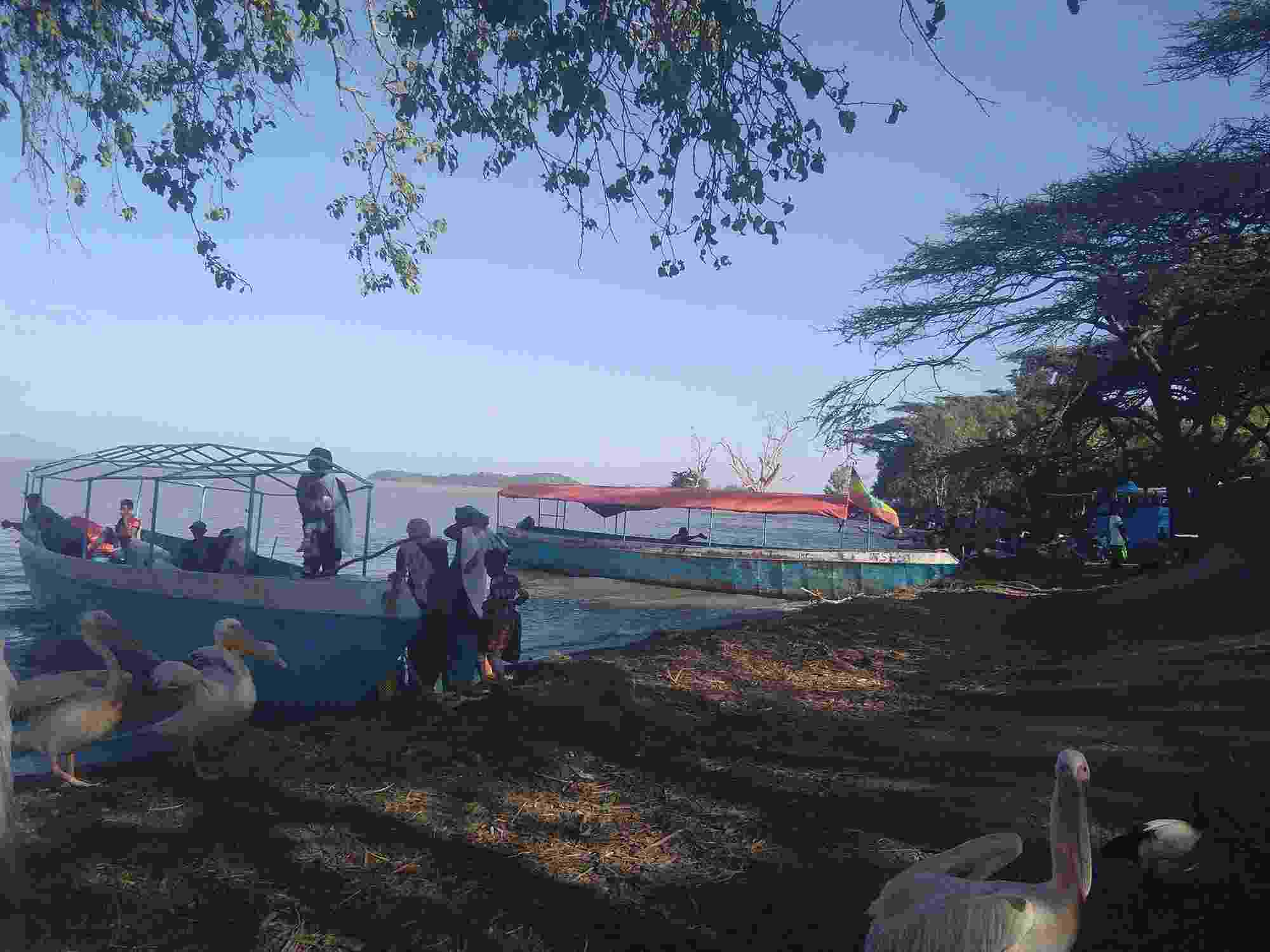

The CRV lakes are important not just as water sources, but for transport, livelihoods, and food too
Understanding the characteristics of our water resources is crucial to their sustainable management: Hub researchers are currently characterising ground-surface water interactions in the Central Rift Valley (CRV). Following the establishment of surface and groundwater monitoring stations and data collection for groundwater and lake models, the team carried out further field visits. Primary data collected from the monitoring stations will be used to explore the connectivity of surface and groundwater systems (including seasonality and trends) as part of the team’s investigations into the impacts of geogenic and anthropogenic processes on regional hydrology. They also carried out assessments on: the state of the hydro-ecosystem; temporal and spatial changes taking place on lakes and their environs; and land use land cover change in the CRV.
As we strive for global water security, we must ensure that no-one is left behind or excluded. The Ethiopia Collaboratory water quality team is planning a national stakeholders workshop on ‘Cleaner Urbanisation in Upper Awash Basin: Water Quality for Sustainable Development opportunity’ in collaboration with REACH. Workshop participants will include members of executive government offices, policy makers, researchers, water experts, and end-users. The major aim of the workshop is to bring together stakeholders from different sectors, levels, and backgrounds to form relationships for important inter-sectoral collaboration and integration of multiple stakeholder views and values.
Ethiopian colleagues have formed a close working relationship with the Ethiopian Ministry of Water and Energy (MoWE) and earlier this year established biomonitoring stations on the Akaki River. Working in collaboration with MoWE experts, members of the IWMI team organised a field campaign with local citizen scientists, measuring river flow velocity for development of stage-discharge relationship (rating curve).
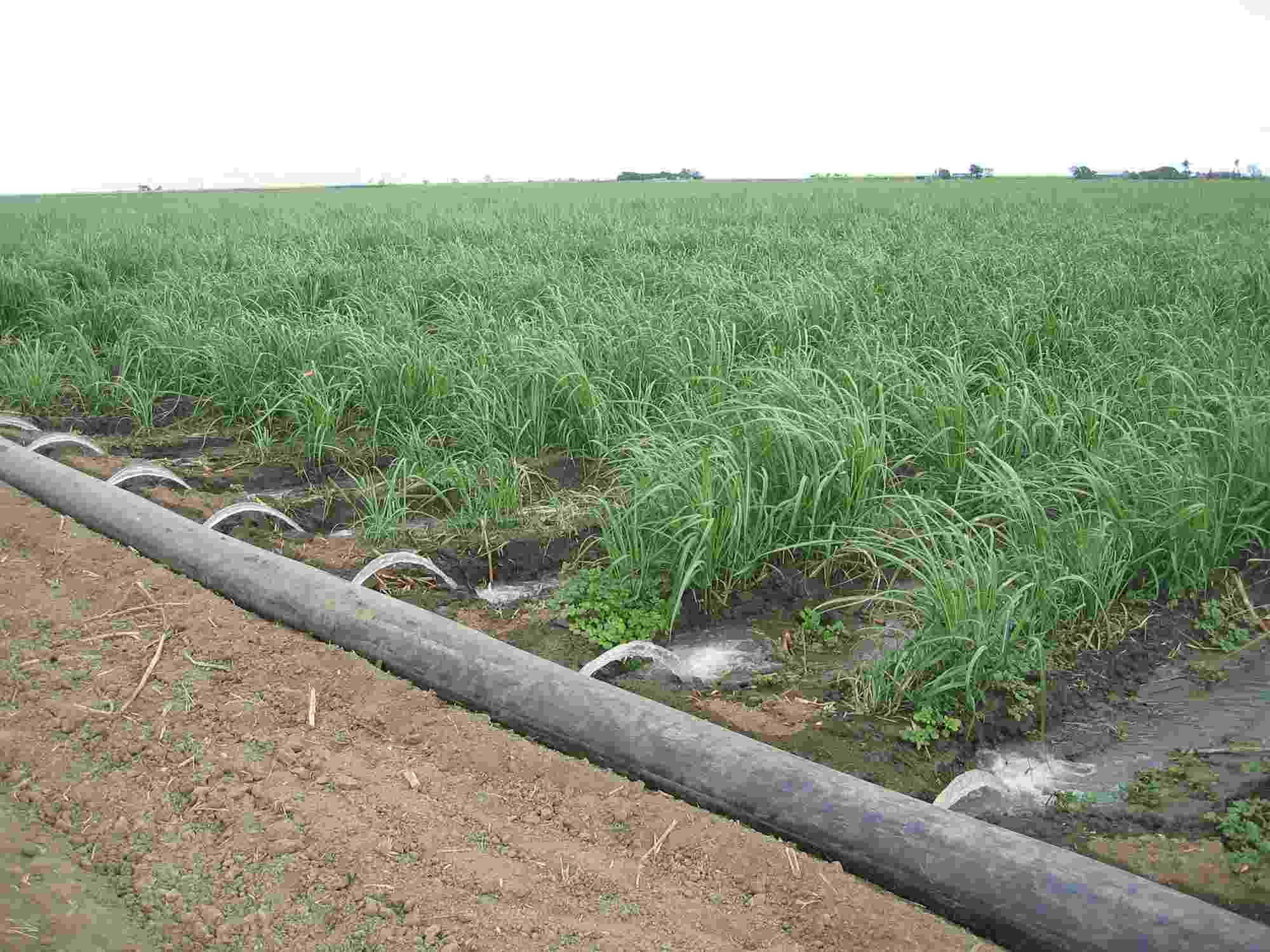

A hydroflume (sometimes called a drip irrigation system) directly irrigates targeted crops and avoids watering non-fertile soil
Following her recent appointment as a coordinator of the African Young Water Professionals Forum, Dr Adey Mersha has been nominated to take part in a training package and regional conference, organised by the International Commission on Irrigation and Drainage (ICID) and the Virtual Irrigation and Water Academy (VIA). The conference focuses on the theme of Transforming Smallholder Irrigation in Africa. The objective of the African Young Water Professionals Forum is to bring together Africa’s future water leaders from all sectors and industries, around the central focus of water conservation for sustainable development. Dr Mersha has also been made an Editorial Board member of the Ethiopian Journal of Development Research, a bi-annual journal devoted to development-oriented research, published by the Institute of Development Research.
Finally, Dr Ermias Teferi was invited to give a presentation on ‘Trees and urban heat island effect in Addis Ababa’ at a UN Habitat workshop on Urban Greening. Dr Ermias was also invited by Ethiopian media to share insights on the importance of urban greening to control urban flooding and watershed management activities to reduce siltation in reservoirs in the Abbay Basin.



